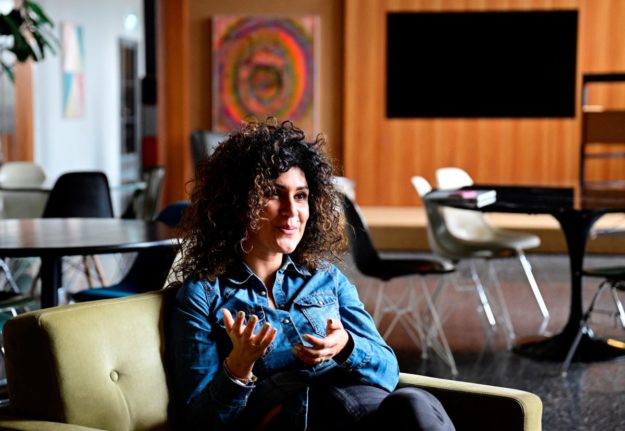Around 90 percent of Germans believe that racism exists in the country, according to the study from the new National Discrimination and Racism Monitor (NaDiRa).
Researchers in the survey, carried out by the German Centre for Integration and Migration Research (DeZIM), found that nearly half of respondents – 45 percent – said they had observed racist incidents. And more than a fifth of the population – about 22 percent – said they had been affected by racism themselves.
READ ALSO: Black people in Germany face ‘widespread’ racism, study finds
Co-director of the DeZIM Institute Naika Foroutan said that racism is a part of “everyday life in Germany”.
“It affects not only minorities, but the whole of society, directly or indirectly,” he said.
Foroutan said structural and institutional racism “is also seen as a problem by many people”.
“Racist disadvantages are particularly often recognised in the areas of school, work and housing. The issue should therefore be tackled pro-actively and in the long term by policymakers. Our study shows that a large part of the German population would support this.”
READ ALSO: High costs, long queues and discrimination – what it’s like to rent in Germany
Family Minister Lisa Paus (Greens) said the fact that people recognise the problem means the country is “on a good path”.
“The vast majority of people in Germany recognise that racism exists in Germany,” said Paus while presenting the results of the study in Berlin on Thursday.
“People are also willing to get involved (to act) against it.”

OPINION: When will Germany deal with its casual racism problem?
Paus said that the commitment to tackle racism would be further strengthened by new laws, such as the Democracy Promotion Act.
“In this way, we will strengthen the fight for democracy and diversity, and against extremism and racism,” she said.
“Germany is aware of its racism problem,” added Reem Alabali-Radovan, the Federal Government Commissioner for Racism. The fact that 90 percent of people recognise racism exists is “good news, because it is an important step for change”, he added.
What else do Germans say about racism?
According to the study, half of respondents agree with the statement: “We live in a racist society.”
A majority – 65 percent – think that racial discrimination exists in public authorities. Around 70 percent of respondents said they are prepared to oppose racism – for example, by organising a demonstration, petition or by standing up against it it if they come across racism in their everyday life.
Meanwhile, 81 percent agree with the statement that people can behave in a racist way without intending to.
However, 45 percent of respondents said that criticism of racism is exaggerated, and represents a restriction of freedom of expression in the sense of “political correctness”.
Some people who complained about racism were “oversensitive”, 33 percent of respondents said. Meanwhile, 52 percent even took the view that those affected were too “fearful”.
Researchers interviewed around 5,000 people from April to August 2021 for the study. The review is set to be carried out every two years.
Last year, The Local reported on the the Afrocensus project, which found black people in Germany face widespread racism.
“There is no area of life in which discrimination and racism are not extensive problems,” said the report authors, underlining the deep racial problems in Germany.
READ ALSO: ‘Black lives need to matter in Germany’ New project to uncover racism in everyday life



 Please whitelist us to continue reading.
Please whitelist us to continue reading.
Member comments